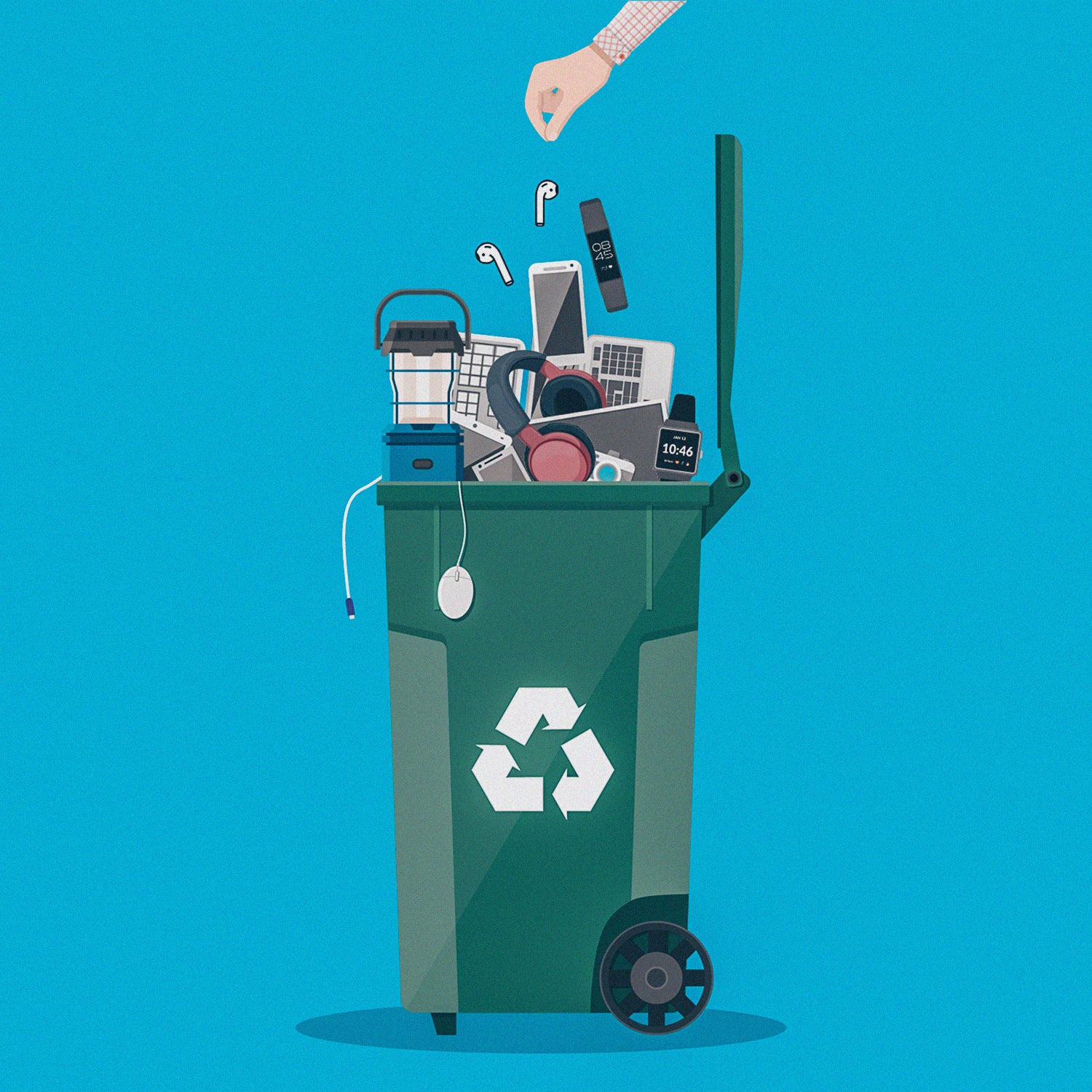Lasting Electronic Devices Disposal: Make Certain Conformity with R2 Certification
Elevate Your E-Waste Administration With R2 Accreditation: an Extensive Overview
One trick method to raise e-waste monitoring practices is by obtaining R2 qualification. By exploring the procedures and benefits associated with R2 accreditation, a much deeper understanding of how it can transform e-waste administration strategies arises, shedding light on a path towards sustainability and honest disposal techniques.
Relevance of E-Waste Management

When e-waste is not managed properly, these toxic compounds can permeate into the ecological community, triggering injury to wildlife and possibly entering the food cycle, posturing dangers to human wellness. Additionally, the inappropriate disposal of e-waste contributes to contamination and greenhouse gas exhausts, exacerbating climate adjustment and environmental deterioration.

Benefits of R2 Certification

To start with, R2 certification boosts reliability by showcasing a company's dedication to lasting practices. It guarantees consumers, partners, and stakeholders that the business follows strict criteria for e-waste management - r2 certification. This integrity can lead to enhanced trust fund and improved connections with customers that prioritize environmental obligation
Second of all, R2 certification helps alleviate threats associated with incorrect e-waste disposal. By complying with the rigorous standards stated by the certification, organizations can lessen the chance of data breaches, environmental contamination, and legal consequences. This positive strategy safeguards the firm's reputation and minimizes prospective obligations.
Finally, R2 accreditation shows a dedication to ecological stewardship - r2 certification. By properly taking care of digital waste with accredited processes, companies add to the preservation of sources, reduction of contamination, and promotion of a circular economic climate. This commitment not only benefits the environment yet additionally straightens with advancing customer assumptions for lasting company methods
R2 Certification Process Overview
Having actually developed the advantages of R2 accreditation in promoting reliability, risk mitigation, and ecological stewardship, it is necessary to currently detail the in-depth process associated with getting this accreditation. The R2 accreditation process starts with a complete evaluation of the organization's functional policies and procedures to make certain compliance with the R2 standard. This first evaluation is important in identifying any kind of spaces that need to be resolved prior to proceeding better.
When the organization's techniques line up with the R2 conventional requirements, an independent third-party auditor performs an on-site audit to assess the implementation and efficiency of these methods. This audit includes a detailed review of documents, meetings with personnel, and physical inspections of centers to verify conformity.
Following an effective audit, the organization obtains a certification decision based on the auditor's searchings for. If accepted, the organization is approved R2 certification, demonstrating its dedication to responsible e-waste administration. It is necessary to note that keeping R2 certification needs recurring compliance with the requirement's needs and periodic audits to make sure ongoing adherence to best methods in e-waste recycling and disposal.
Secret Standards for R2 Compliance
A crucial aspect of accomplishing R2 conformity discover here is making certain that all electronic waste (e-waste) processing facilities satisfy rigorous environmental and safety requirements. To abide by R2 needs, organizations should follow crucial standards that concentrate on responsible e-waste management methods. These requirements consist of applying a recorded ecological, health, and safety management system, guaranteeing the safe handling of data-containing gadgets, and performing detailed downstream due persistance to track the last location of e-waste products.
In addition, R2 conformity demands the correct screening, repair, and recycling of digital devices to prolong its beneficial life and lessen ecological effect. Facilities seeking R2 accreditation need to likewise prioritize employee health and wellness and safety by offering necessary training, personal safety devices, and his comment is here a secure workplace. Furthermore, maintaining detailed documents of e-waste handling activities and frequently undergoing audits by accredited licensing bodies are crucial elements of showing recurring compliance with R2 standards.
Influences of Sustainable E-Waste Practices
The implementation of lasting e-waste methods in accordance with R2 conformity not only ensures ecological and security standards are fulfilled however also dramatically affects the total lifecycle of electronic items. By find out this here sticking to R2 standards, digital waste management procedures become extra effective, lowering the environmental impact of electronic items. Sustainable e-waste techniques help with the correct disposal of electronic parts, ensuring that harmful materials are managed responsibly and do not wind up contaminating the atmosphere.
Furthermore, lasting e-waste techniques can add to work production in the recycling and repair fields, cultivating financial development while advertising ecological duty. On the whole, the fostering of lasting e-waste techniques under R2 certification offers as a crucial step in the direction of attaining an extra eco lasting electronic devices market.
Final Thought
Finally, executing proper e-waste management techniques is critical for ecological sustainability and source conservation. R2 certification plays a key role in making certain liable handling and disposal of digital waste. By adhering to the stringent standards established forth by R2 requirements, organizations can not just lessen their ecological impact but likewise contribute to an extra lasting future for generations to find.
One key approach to raise e-waste management techniques is by obtaining R2 accreditation. By exploring the procedures and benefits associated with R2 qualification, a much deeper understanding of exactly how it can revolutionize e-waste monitoring techniques emerges, shedding light on a course towards sustainability and moral disposal practices.
The R2 qualification process starts with a complete review of the company's operational plans and procedures to make sure compliance with the R2 requirement. If approved, the company is granted R2 accreditation, showing its commitment to liable e-waste administration. On the whole, the adoption of lasting e-waste practices under R2 accreditation offers as an important action towards attaining a more ecologically lasting electronics market.